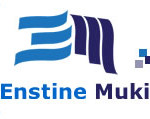Introduction
In the fast-paced digital world, having a solid online presence is imperative for success, whether you’re a seasoned blogger, an e-commerce entrepreneur, or a small business owner. Search Engine Optimisation (SEO) is crucial to leaving your mark online. The relationship between cryptocurrency and SEO is an intriguing one worth investigating, especially with the rising interest in blockchain technology and cryptocurrencies.
SEO is a multifaceted strategy that, when executed correctly, can skyrocket your website’s visibility and bring in a flood of organic traffic. If you’re reading this article, chances are you’re familiar with Enstine Muki and the kind of content his readers crave – in-depth insights and practical tips to excel in the digital space like the trader AI.
We’ll go deeply into SEO in this extensive article, examining its nuances and offering helpful suggestions to help you grow your website.
The Fundamentals of SEO
Let’s start with the fundamentals of SEO before getting into the specifics. To do this, you must optimize several different areas of your website.
Using keywords strategically is one of the cornerstones of SEO. To identify words related to your area, conduct in-depth keyword research. SEMrush and Google Keyword Planner are just two of the tools that are available to help you with this process. After selecting your keywords, incorporate them naturally into your website’s content. This includes your titles, headings, body text, and meta descriptions.
Creating high-quality and engaging content is essential for SEO success. Content is what brings users to your site and keeps them engaged. Ensure your content is unique and not duplicated from other sources. Google rewards fresh, original content. Your chosen keywords and target audience should be reflected in your content. Relevant, high-quality material has a better chance of ranking well in search results.
On-Page SEO
The term “on-page SEO” describes the optimization strategies you use on your website itself to raise its search engine rating. HTML components called meta tags give search engines details about a website.
The title of a webpage that appears in search engine results is called the title tag. It needs to include the target term and be concise and descriptive. A web page’s meta description provides an overview of its content. It should also have the target keyword and entice users, encouraging them to click on your link.
You utilize header tags (H1, H2, H3, etc.) to organize the information on your website. They not only improve readability but also give search engines insight into the order and significance of your material. Make sure your URLs are optimized using pertinent keywords. In addition to being more user-friendly, straightforward, descriptive URLs can boost SEO.
While images can improve user experience, search engine optimization is still necessary. To aid search engines in understanding the photos’ purpose, provide alt tags and descriptive file names.
Off-Page SEO
Activities that happen off your website but have a significant influence on your search engine ranking are called off-page SEO. You may get backlinks to your website from other websites.
Create excellent content that is desirable for other websites to connect to. Original research, infographics, and educational pieces can all fall under this category. Offer to write guest posts or make requests for backlinks and mentions of your work. Make sure you monitor your backlink profile with Moz or Ahrefs. Disavow links that are spammy or harmful to your SEO.
Content Marketing
In addition to creating high-quality content, you should have a well-defined content marketing strategy to maximize your SEO efforts. Regularly publishing informative and engaging blog posts can establish you as an authority in your niche. These posts can target specific keywords, and over time, they can accumulate organic traffic.
Do more than rely on search engines to bring in visitors. Video content is gaining popularity. Producing multimedia content, such as videos, may improve user interaction and increase website traffic. Guest posting on other respectable websites might help you increase backlinks and reach new readers for your work.
Local SEO
For businesses that target local customers or have a physical location, local SEO is crucial. Make improvements to and activate your Google My Business listing. Make sure all of the information about your business is accurate, including your address, phone number, and hours of operation.
Local SEO requires that the information about your company be consistent across web directories and listings. Ensure the news on your NAP (Name, Address, Phone number) is accurate.
Good reviews can increase the trustworthiness and local rankings of your business. Choose keywords that are relevant to the area. To draw in local traffic, include your city or province in your article.
Social Media
While not a direct ranking factor for search engines, social media plays a significant role in building your online presence and indirectly impacting SEO. Actively engage with your followers on social platforms. Encourage the community, post pertinent stuff, and reply to comments.
Share the content of your website on social media to increase its visibility. To encourage social sharing, provide social media sharing buttons on your website. Work with influencers in your niche to expand your audience and acquire access to your followers.
You may improve the visibility of your website and increase organic traffic by putting these methods into practice. Remember that SEO is an ongoing process, and staying updated with the latest trends and algorithms is essential for long-term success.
Conclusion
In this guide, we’ve explored the crucial elements of SEO to enhance your website’s visibility. Whether you’re a blogger, e-commerce entrepreneur, or a small business owner, a robust online presence is vital in today’s digital world. We’ve examined the fundamentals of SEO, on-page and off-page strategies, technical SEO, content marketing, local SEO, and the role of social media.
Remember, SEO is an ongoing process. Staying updated with the latest trends and algorithms is essential for long-term success. By implementing the strategies discussed here, you can elevate your website’s visibility, attract organic traffic, and make a significant impact in the digital realm. Put these insights into action, and watch your online success soar.

